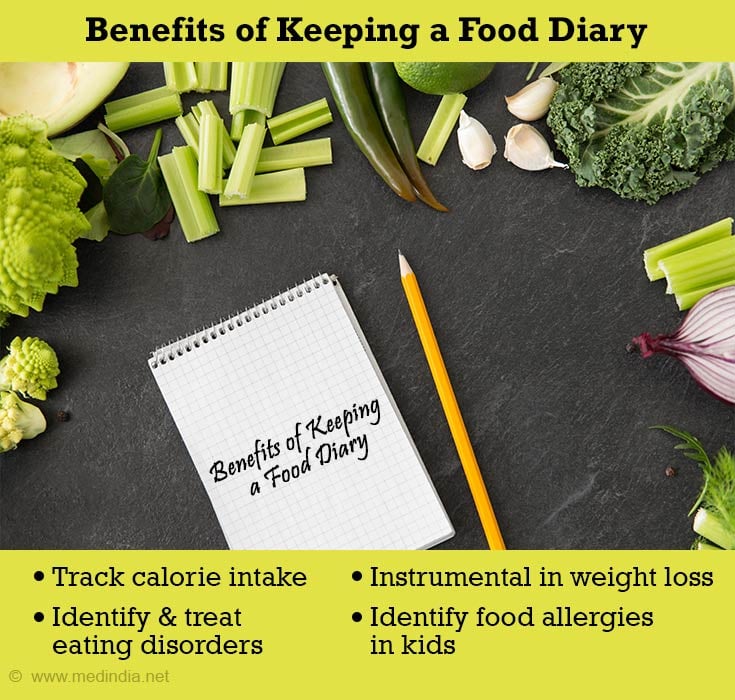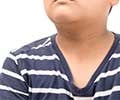- Nutrition: Keeping a Food Diary - (https://familydoctor.org/nutrition-keeping-a-food-diary/)
- Cordeiro, F., Epstein, D. A., Thomaz, E., Bales, E., Jagannathan, A. K., Abowd, G. D., & Fogarty, J. (2015). Barriers and Negative Nudges: Exploring Challenges in Food Journaling. Proceedings of the SIGCHI conference on human factors in computing systems. CHI Conference, 2015, 1159-1162. - (https://doi.org/10.1145/2702123.2702155)
- Why Keep a Food Diary - (https://www.health.harvard.edu/blog/why-keep-a-food-diary-2019013115855)
- The Benefits of Food Journaling - (https://nutrition.org/the-benefits-of-food-journaling/)
- Ingels, J. S., Misra, R., Stewart, J., Lucke-Wold, B., & Shawley-Brzoska, S. (2017). The Effect of Adherence to Dietary Tracking on Weight Loss: Using HLM to Model Weight Loss over Time. Journal of diabetes research, 2017, 6951495. - (https://doi.org/10.1155/2017/6951495)
- Using a Food Diary to Help Sort Out Food Allergies - (https://www.kidswithfoodallergies.org/diagnose-food-allergy-food-diary.aspx#:~:text=While%20a%20food%20diary%20is,the%20foods%20you%20have%20eaten.)
What is a Food Diary?
A food diary is a chronological listing of every food and fluid consumed in a day. It is a fruitful tool to analyze one’s eating habits and patterns(1✔ ✔Trusted Source
Nutrition: Keeping a Food Diary
Go to source). Also referred to as food tracking or food journaling, it is used for different purposes. Food records act as a supporting pillar in maintaining a healthy weight, achieving healthy eating goals, eating mindfully, identifying foods that cause allergy or intolerance, spotting deficiencies, changing negative eating behaviors, tracking calorie intake, and leading a healthy lifestyle(2✔ ✔Trusted Source
Cordeiro, F., Epstein, D. A., Thomaz, E., Bales, E., Jagannathan, A. K., Abowd, G. D., & Fogarty, J. (2015). Barriers and Negative Nudges: Exploring Challenges in Food Journaling. Proceedings of the SIGCHI conference on human factors in computing systems. CHI Conference, 2015, 1159-1162.
Go to source).
What Should be Included in a Food Diary?
A food diary should cover components that will be useful in evaluating one's dietary habits. Some of the basic components that a food diary should have are:
- Food items: Any meal, snack, or beverage consumed should be made a note of in the food diary. Mentioning the usage of any spices, condiments, toppings, sauces, or dressing may also be useful to spot specific foods that may cause discomfort or spurt symptoms.
- Quantity: Mentioning how much of any food is consumed is vital. Using standardized measurements such as tablespoons, teaspoons, and cups either in grams or ounces is advisable. If possible, the food can be weighed before consumption.
- Time: Along with the type of food and quantity, the time when the food is consumed is essential. Taking note of timings will help solve eating behaviors such as binge eating or late-night snacking.
- Location: Making a note of where one consumes the food, whether at home or from a restaurant, can be useful. This will help to know the frequency of consuming outside foods.
Other factors that may not be mandatory but can be beneficial jotting down are:
- Activities performed while eating like watching TV, using electronic devices, or talking with someone will help analyze whether the person eats mindfully.
- Mentioning one’s company while eating food - whether a friend, family member, colleague, or whether eating alone.
- One’s feelings while eating food, whether excited, happy, sad, lonely or stressed(3✔ ✔Trusted Source
Why Keep a Food Diary
Go to source).
Impressive Benefits of Keeping a Food Diary
Food intake monitoring displays several benefits, namely
- Analyzing what food you eat and how much
- Tracking calorie intake
- Tracking your goal related to dietary habits
- Understanding the pattern of eating and food choices
- Identifying and treating eating behaviors such as stress-eating, boredom-eating, or binging
- Creating awareness about one’s food intake
- Eating mindfully and making the right food choices
- Identifying foods that ignite certain symptoms(2✔ ✔Trusted Source
Cordeiro, F., Epstein, D. A., Thomaz, E., Bales, E., Jagannathan, A. K., Abowd, G. D., & Fogarty, J. (2015). Barriers and Negative Nudges: Exploring Challenges in Food Journaling. Proceedings of the SIGCHI conference on human factors in computing systems. CHI Conference, 2015, 1159-1162.
Go to source, 4✔ ✔Trusted Source
The Benefits of Food Journaling
Go to source).

Consistency and adherence to food recording have shown to be instrumental in weight loss. A study conducted among people with diabetes to understand the effect of food tracking on weight loss revealed that consistent tracking of meals resulted in significant weight loss when compared to rare or inconsistent tracking. Many studies have also found that food intake monitoring plays a crucial role in initiating lifestyle changes(5✔ ✔Trusted Source
Ingels, J. S., Misra, R., Stewart, J., Lucke-Wold, B., & Shawley-Brzoska, S. (2017). The Effect of Adherence to Dietary Tracking on Weight Loss: Using HLM to Model Weight Loss over Time. Journal of diabetes research, 2017, 6951495.
Go to source).
Among children, food diary is used to identify food allergies. In this case, there are many details noted such as the symptoms along with the timing, ingredients in packaged foods, and their activities performed during the occurrence of abnormal symptoms. Dietitians also suggest patients to record food intake when their health or weight loss goals depict no progress or reach a plateau(6✔ ✔Trusted Source
Using a Food Diary to Help Sort Out Food Allergies
Go to source).
How to Start Writing a Food Diary
Ask yourself why you want to start journaling your food intake. One can use a physical food diary with a pen and paper or use smart apps and software, based on their convenience. Set yourself a goal that you would want to achieve with the help of this food diary. Remember to set SMART (specific, measurable, achievable, relevant, and time-bound) goals and a set of actions to achieve the same.
A basic physical food diary should have enough pages to record your intake and assign each page for a day. Separate the page into columns of specifications you want to record like the food name, quantity, time, location, whom you eat with, activity, and your mood. Additional columns may be required for people tracking their intake to identify food allergies or intolerances to jot down when and what symptoms they experience after a meal(3✔ ✔Trusted Source
Why Keep a Food Diary
Go to source, 4✔ ✔Trusted Source
The Benefits of Food Journaling
Go to source).
Points to Analyze from a Food Diary
Once you have started recording the daily food intake, evaluation is the next step. Take a look at the record and scan to find eating patterns or habits that you might want to improve or change. Asking yourself the following questions will be helpful in your evaluation.
- Am I choosing healthy foods?
- Am I consuming more whole, less processed foods?
- Am I consuming adequate fruits and vegetables?
- Is my dietary pattern helping me achieve my goal?
- What foods do I eat when I am stressed?
- Do I engage in mindful eating?(3✔ ✔Trusted Source
Why Keep a Food Diary
Go to source)
Doctors and Dietitians use the food diary to evaluate one’s eating habits to spot the root cause of abnormal symptoms. However, a food diary cannot be used as a diagnostic tool but definitely is of great use to understand the potential causes of the problem(6✔ ✔Trusted Source
Using a Food Diary to Help Sort Out Food Allergies
Go to source).
Tips for Successful Food Diary
Being consistent and accurate is the way forward in maintaining a successful food diary. Keeping in mind the below-mentioned points will also assist in food journaling.
- Do not wait until the end of the day to note the day’s consumption. Noting down immediately after consuming any food or drink will prevent missing out on any food.
- Be specific with the details. Pre-list all the specifications such as quantity, time, and location to be recorded.
- Remember to note all beverages consumed, including alcohol.
- Using smart apps with diary software can be handy and easy to stay consistent(3✔ ✔Trusted Source
Why Keep a Food Diary
Go to source).
A food diary is an instrumental tool that carves one’s pathway towards achieving health-related goals and building healthy eating habits.
 MEDINDIA
MEDINDIA
 Email
Email



